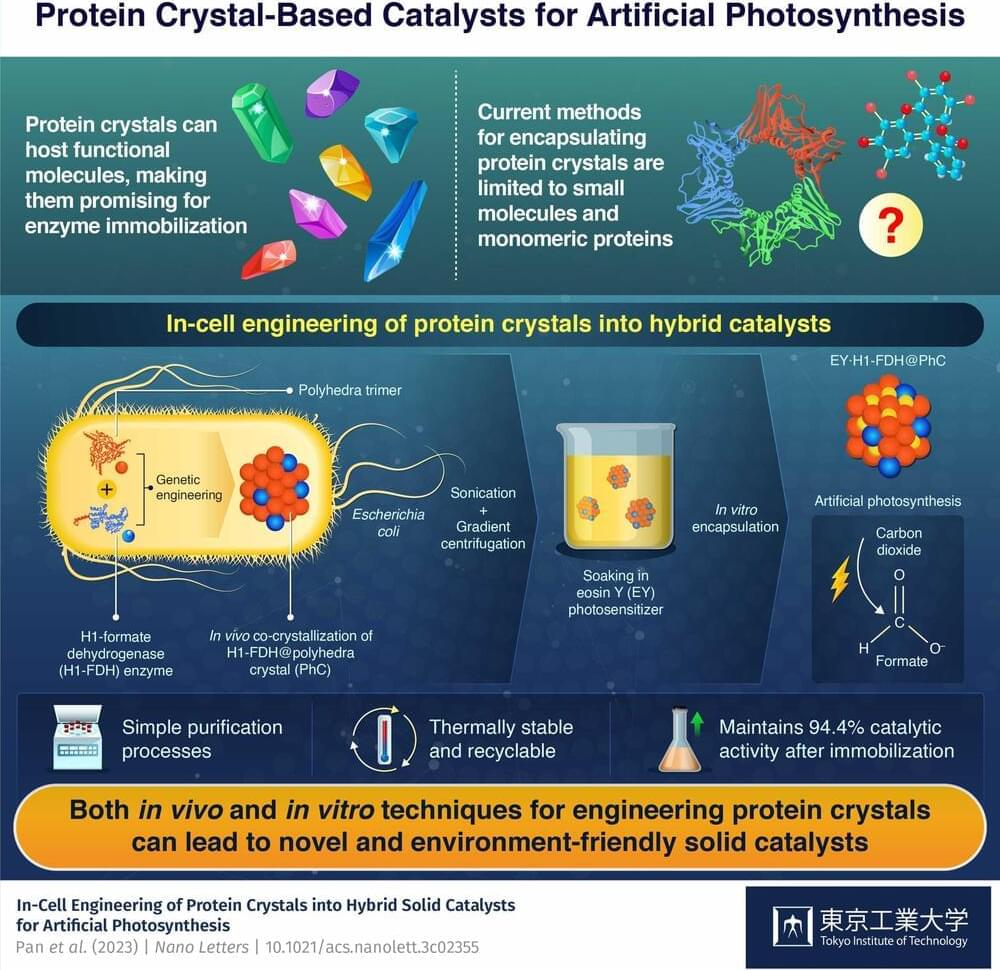In-cell engineering can be a powerful tool for synthesizing functional protein crystals with promising catalytic properties, show researchers at Tokyo Tech. Using genetically modified bacteria as an environmentally friendly synthesis platform, the researchers produced hybrid solid catalysts for artificial photosynthesis. These catalysts exhibit high activity, stability, and durability, highlighting the potential of the proposed innovative approach.
Protein crystals, like regular crystals, are well-ordered molecular structures with diverse properties and a huge potential for customization. They can assemble naturally from materials found within cells, which not only greatly reduces the synthesis costs but also lessens their environmental impact.
Although protein crystals are promising as catalysts because they can host various functional molecules, current techniques only enable the attachment of small molecules and simple proteins. Thus, it is imperative to find ways to produce protein crystals bearing both natural enzymes and synthetic functional molecules to tap their full potential for enzyme immobilization.










Comments are closed.